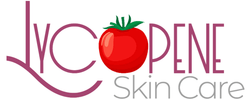Our skin reacts to many different internal and external stimuli. Each person’s sensitivity is different but may be affected by medications, foods, environmental factors, and especially skincare and cosmetics ingredients. Realize of the factors mentioned nothing is a more direct simulator than a cream or cosmetic you apply directly to your skin. It has direct contact, remains for possibly hours, and may block some of the skin’s natural processes.
Most of the population may be reactive to the dyes, preservatives, and perfumes that are used in chemical-based skin care products. So, starting with all-natural products will solve many skin care issues. But those with a higher level of sensitivity may still experience reactivity issues, such as those people with red-rosacea type skin.
Rosacea is a chronic malady that is first noticed as red patches on the cheeks, chin, nose, or forehead and may come and go periodically. Some people’s susceptibility to rosacea skin has been diagnosed even in their early 20’s. At this time rosacea’s exact cause is not known and the condition still remains incurable, but many times controllable.
Rosacea is identified in three stages:
- Frequent blushing, and your skin quickly may become irritated by applying topical creams, sunscreens, or cosmetics.
- In the next stage the redness may become constant and more uneven. You will start to see the blood vessels under your skin become visible and in more advanced cases pustules will begin to form.
- Finally, many dilated veins may appear, especially around the nose, and an excess of large pores will be visible. In its most advanced state skin may become bumpy (W.C. Fields and J.P. Morgan had this state) and nose will be come bulbous. Furthermore, the entire face may become involved and show these symptoms.
Various outside influences have been identified as factors that may cause flare-ups of Rosacea:
- The weather
- Many types of beverages – hot & cold – especially those with alcohol
- Food – like an allergic reaction – those high in niacin or histamines which influences moving blood closer to the skin surface.
- Physical exercise
- Warm environments – natural or artificial – saunas, hot bathing
- Taking drugs – over the counter or prescribed – especially vasodilators or steroids
- Skin Care products and soaps that may contain artificial ingredients especially alcohol or acetone-based ones.
Although rosacea cannot be cured, it can be controlled. When severe, immediately see a dermatologist. If you can diagnose it at its initial stages a natural cream containing Azelaic Acid has proven to be a good answer for controlling rosacea, lessening red areas, and to even out skin shade. While rosacea may fade with time on its own, the skin’s health will continuously benefit from the use of a natural Azelaic acid-based cream.

